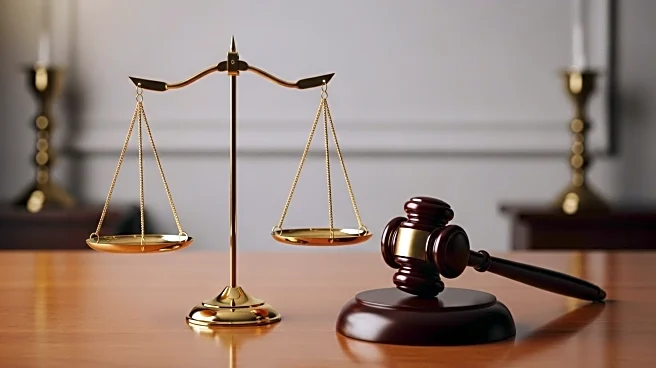What's Happening?
A coalition of unions, educational institutions, and religious organizations has filed a lawsuit against the Trump administration over the imposition of a $100,000 fee for H-1B visas. The lawsuit argues that the fee is unlawful, as the president lacks the authority to impose taxes or generate revenue through the visa program without congressional approval. The plaintiffs claim the fee will harm various sectors, including hospitals, schools, and small businesses, and that the administration failed to follow proper regulatory procedures.
Why It's Important?
The lawsuit challenges the administration's approach to immigration policy and its impact on the economy and workforce. The fee could significantly affect the ability of U.S. organizations to hire skilled foreign workers, potentially leading to labor shortages and increased costs. The case highlights the tension between executive actions and legislative authority, as well as the broader implications for immigration policy and economic competitiveness.
What's Next?
The legal proceedings will likely continue, with potential implications for the administration's ability to impose fees and regulate immigration policy. The outcome may influence future visa policies and the balance of power between the executive branch and Congress. Stakeholders in affected sectors may increase advocacy efforts to protect their interests and ensure access to skilled labor.
Beyond the Headlines
The lawsuit raises broader questions about the role of immigration in the U.S. economy and the ethical considerations of imposing fees on visa programs. It also highlights the importance of regulatory processes in ensuring transparency and accountability in government actions.










